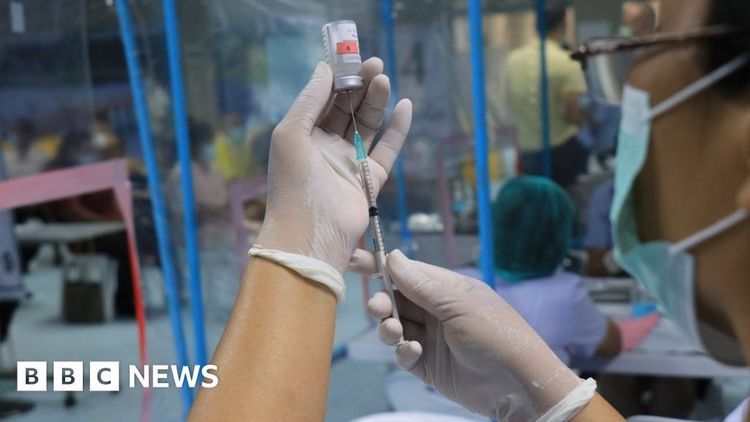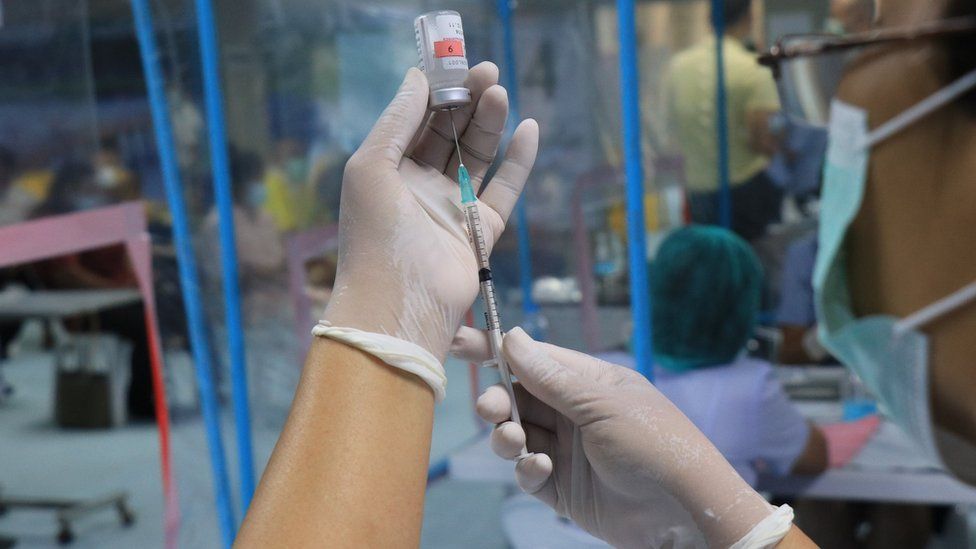AstraZeneca to withdraw Covid vaccine

The picture used in this blog post was obtained from Getty Images.
AstraZeneca announced that it was a business choice to pull out the vaccine.

As a correspondent in the field of health and science, I have found that there are many fascinating topics to explore related to these areas. For instance, there are many studies that are currently being conducted on the effects of different types of medicines on the human body. Additionally, there is a lot of research being done on the ways that different lifestyle choices can impact our health, including diet, exercise, and stress management. One interesting topic that I have recently been investigating is the connection between mental health and physical health. While it has long been known that the two are related, there is growing evidence to suggest that the link is even stronger than many people realize. For example, studies have shown that individuals who suffer from depression or anxiety are at a higher risk for developing a range of physical health problems, from heart disease to cancer. Another area of interest for me is the fascinating world of genetics. While we have known for some time that our genes play a key role in determining our health and predisposition to certain diseases, recent developments in gene therapy and personalized medicine are opening up new possibilities for treating a wide range of illnesses. With these exciting new technologies emerging, it's an exciting time to be studying health and science.
The Covid vaccine produced by Oxford-AstraZeneca has been removed from use after over three billion doses.
AstraZeneca expressed its immense pride for the vaccine, yet it ultimately made a business choice.
The statement conveyed that the emergence of fresh strains of coronavirus had triggered a change in preferences towards the latest and revised versions of vaccines.
Although hailed as a life-saving measure during the pandemic, the vaccine has also been linked to infrequent yet lethal blood clot episodes.
Scientists at the University of Oxford have succeeded in creating the Covid vaccine in an incredibly short span of time, as the world races to recover from the pandemic lockdowns. Typically, this project would take a decade to complete, but it was expedited and finished in just ten months.
Back in November of the year 2020, it was famously praised for being "a vaccine that could be available for everybody" due to its lower cost and simpler storage requirement when compared to the other Covid vaccines. The well-known drug company AstraZeneca had made a deal to produce it in large quantities.
At first, it was the fundamental basis for the UK's strategy to exit lockdown through vaccination.
Prof Adam Finn, hailing from the University of Bristol, expressed that the reality is that it had a substantial impact and it was the very thing that helped us escape the disastrous situation that was happening, in conjunction with the Pfizer vaccine.
Nevertheless, the vaccine faced negative publicity due to the appearance of uncommon blood clots as an infrequent outcome, causing the UK to switch to other options.
AstraZeneca announced that in the initial year of usage, independent calculations showed that more than 6.5 million individuals were rescued.
Governments worldwide have acknowledged our hard work and consider it an essential factor in putting a stop to the worldwide outbreak.
The article mentioned that because of the creation of updated vaccines that can better combat the new strains of Covid that are currently spreading, there is now an excess of newer vaccines available. This has caused a decrease in the need for the previous vaccine that is no longer in production or distribution.
Professor Finn stated that in his opinion, the vaccine is being removed from use because it is no longer effective.
This virus has proven to be highly adaptable and has mutated beyond the efficacy of the original vaccines. As a result, the old vaccines are essentially ineffective and only updated versions are being utilized at present.
Story Gets Deeper
The external sites' content is not the responsibility of the BBC.































































